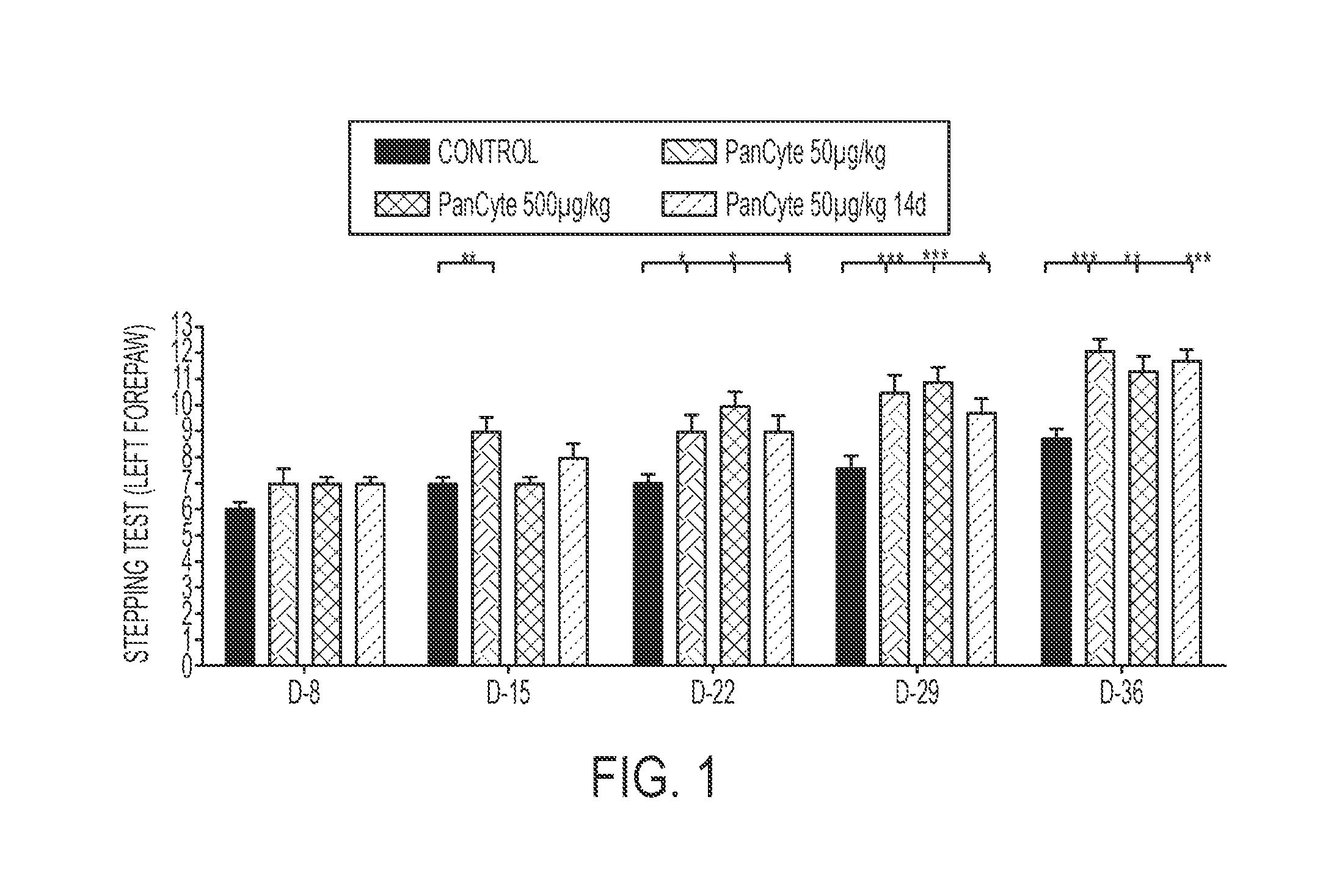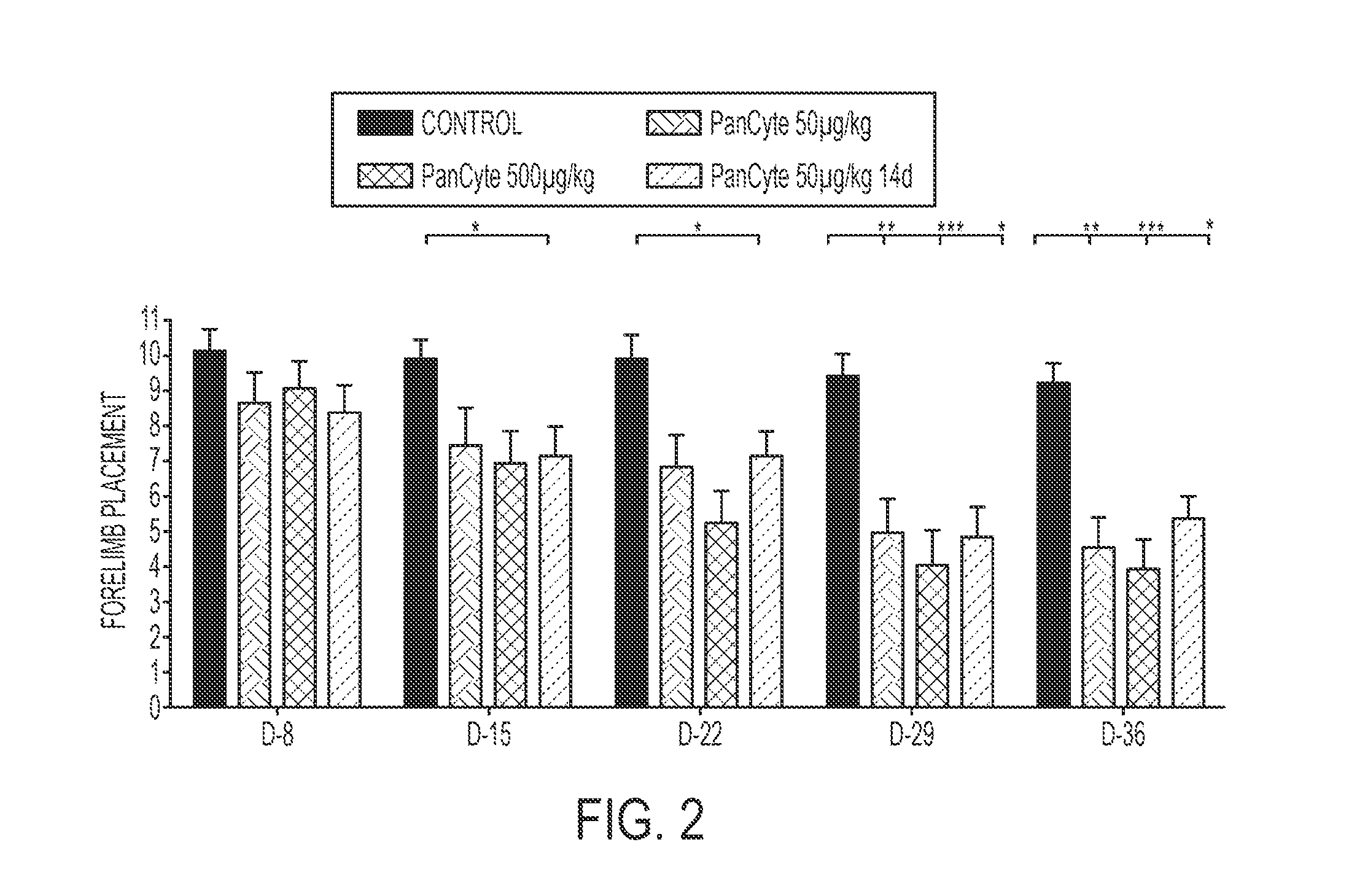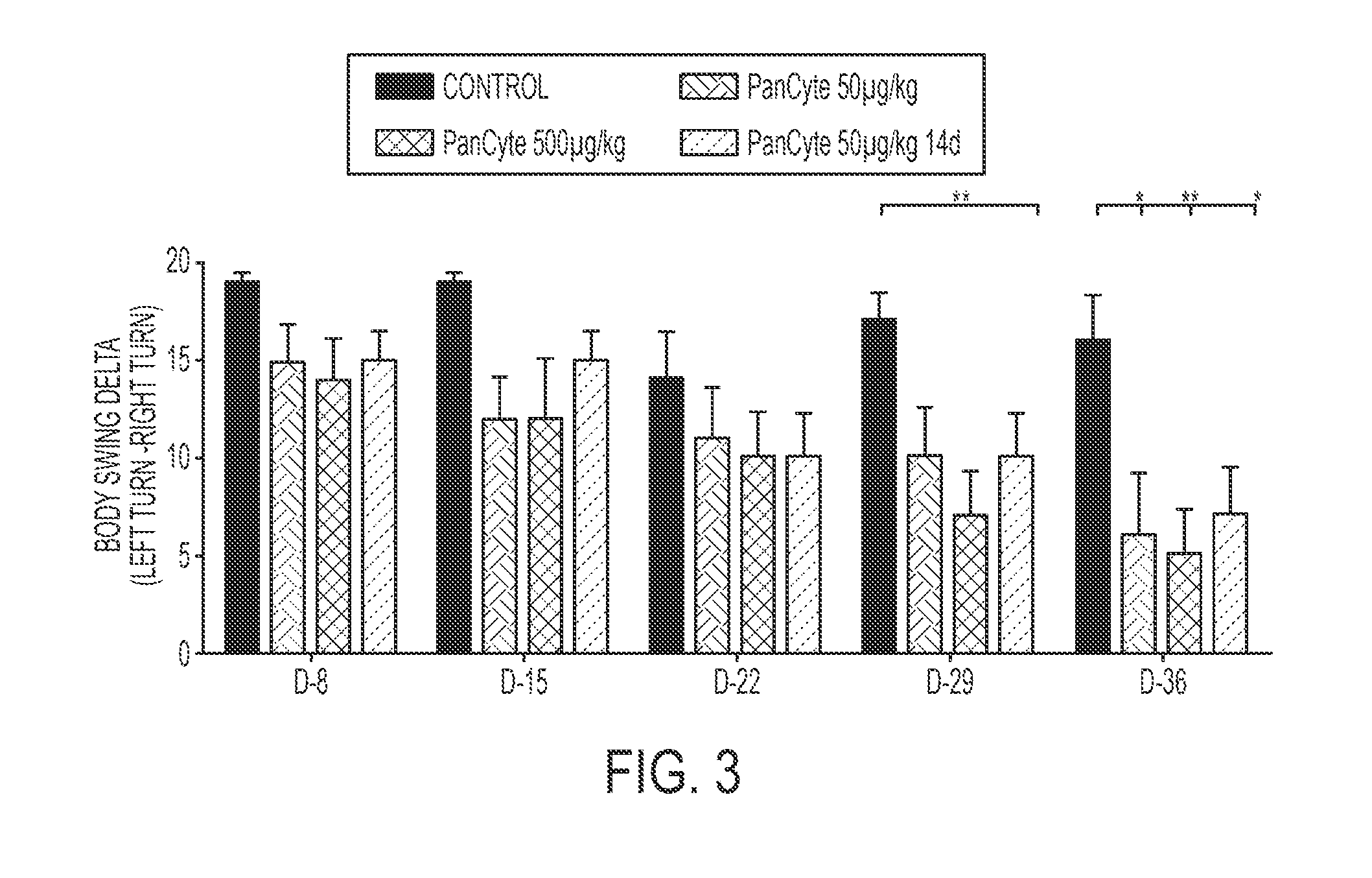Angiotensin in treating brain conditions
an angiotensin and brain technology, applied in the direction of drug compositions, peptide/protein ingredients, peptide sources, etc., can solve the problems of brain damage, therapeutic levels reaching the brain, etc., and achieve the effects of increasing protease resistance, serum stability and/or bioavailability
- Summary
- Abstract
- Description
- Claims
- Application Information
AI Technical Summary
Benefits of technology
Problems solved by technology
Method used
Image
Examples
example 1
Continuous PanCyte Administration
[0200]Several animal models have been used to study cerebral ischemia in an effort to understand its pathophysiology and to identify therapeutic strategies for minimizing the severity of ischemic damage. Focal ischemia brings about localized brain infarction and may be induced by middle cerebral artery occlusion (MCAO). A rat model of MCAO has gained acceptance as a model for hemispheric infarction in humans. After MCAO, a cortical and striatal infarct with temporal and spatial evolution occurs within the vascular region supplied by the middle cerebral artery.
[0201]In the past several years, ample evidence has been gathered regarding behavioral assessments in stroke animal studies, including the MCAO rat model of ischemic stroke. Behavioral improvement is thought to be a reliable parameter for efficacy studies of potential therapeutics.
[0202]A desirable treatment for vascular complications of stroke would be a non-invasive means of promoting neovascu...
example 2
Comparison of TXA127, PanCyte, or Linear PanCyte Administration
[0217]The animal model, surgical procedures, and animal care procedures and conditions were as described above for Example 1 unless otherwise specified. In this example, a total of 105 animals were used, and Table 2 shows the group allocation for this study:
[0218]
TABLE 2Group AllocationTreatment durationTotalGroupTreatmentDose(days)rats1Vehicle028152TXA127 500 μg / kg28153TXA1271,000 μg / kg 28154TXA127 500 μg / kg*28155PanCyte 500 μg / kg*28156PanCyte 500 μg / kg28157Linear 50 μg / kg*2815PanCyte*rats treated by Alzet pump continuous administration subcutaneously
[0219]Animals were subjected to a modified Modified Neurological Rating Scale (mNRS) at 24 hours post reperfusion. Only animals with an overall score of ≧10 were included in this study. Animals were allocated into the test groups, according to the mNRS results on day 2, in order to have similar distribution of rats performance between groups. Starting on day 2, 24 hours ...
PUM
| Property | Measurement | Unit |
|---|---|---|
| Frequency | aaaaa | aaaaa |
| Frequency | aaaaa | aaaaa |
| Frequency | aaaaa | aaaaa |
Abstract
Description
Claims
Application Information
 Login to View More
Login to View More - R&D
- Intellectual Property
- Life Sciences
- Materials
- Tech Scout
- Unparalleled Data Quality
- Higher Quality Content
- 60% Fewer Hallucinations
Browse by: Latest US Patents, China's latest patents, Technical Efficacy Thesaurus, Application Domain, Technology Topic, Popular Technical Reports.
© 2025 PatSnap. All rights reserved.Legal|Privacy policy|Modern Slavery Act Transparency Statement|Sitemap|About US| Contact US: help@patsnap.com



